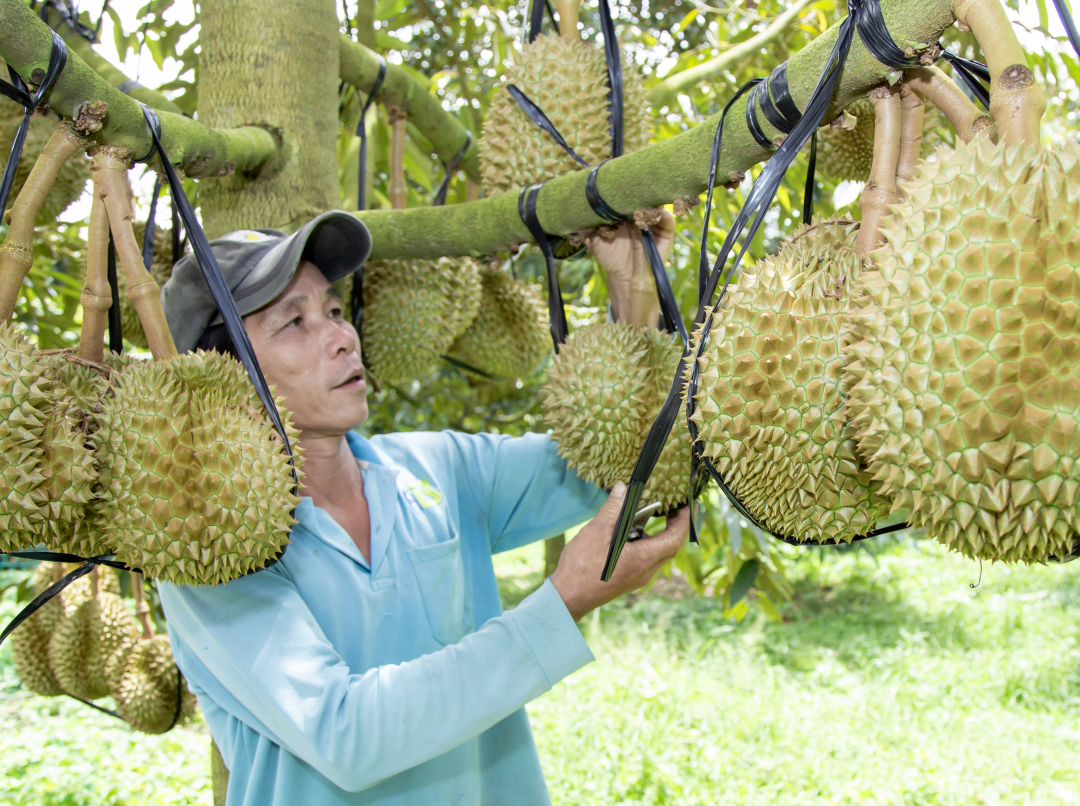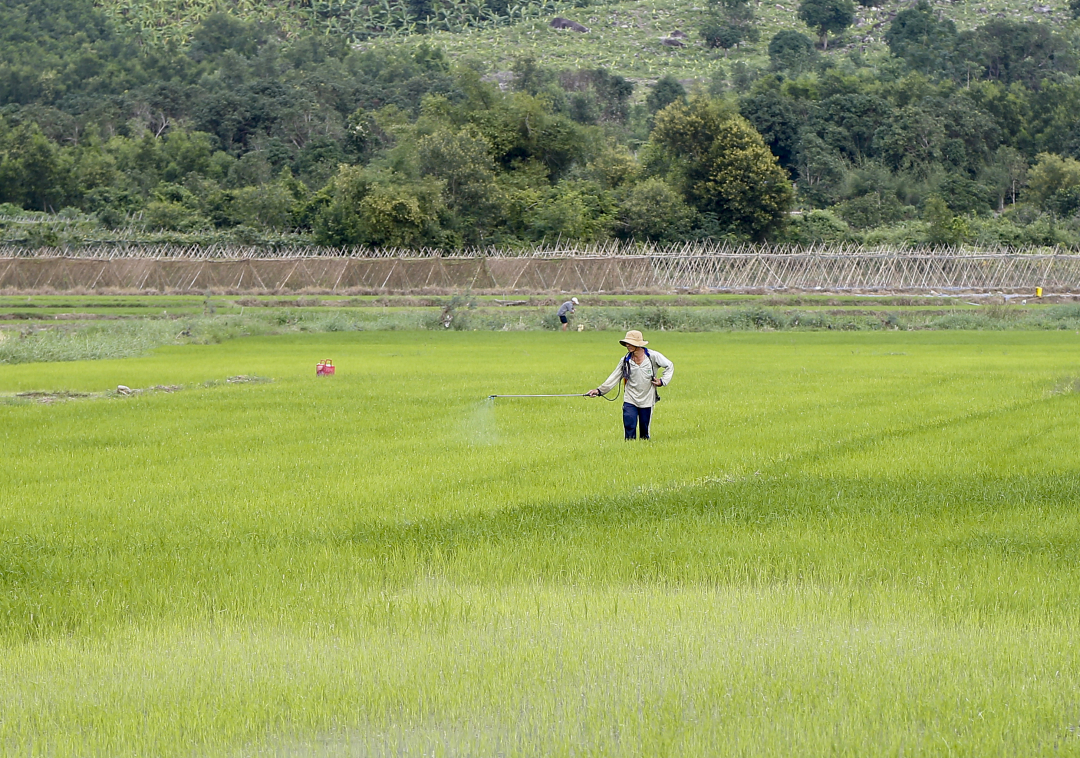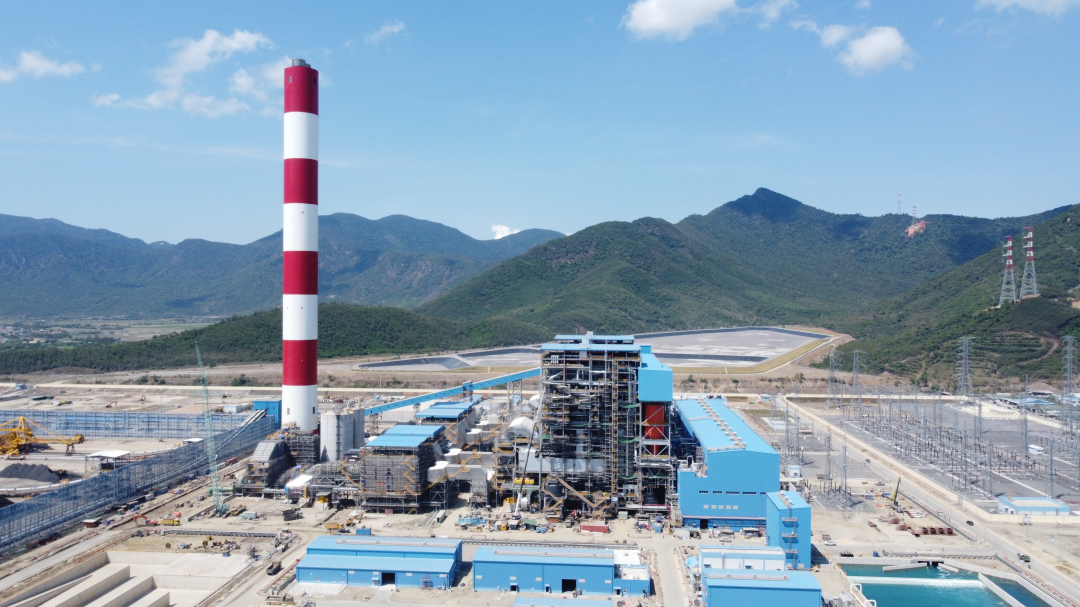Khanh Hoa Provincial People's Committee has just approved an action plan to promote the application of Integrated Plant Health Management (IPHM) on main crops in the province in the period of 2023 - 2030. Unlike IPM (integrated pest management), IPHM methods focus on improving the health of plants to increase resistance to pests. The province targets that by 2030, farmers will basically understand and apply IPHM methods for main crops.
From eradicating pests...
The province decided that besides rice as the key crop, main crops in the province include mango, durian, grapefruit, garlic and sugarcane. Not only do they excel in terms of area and output, but these crops also bring the main income for farmers. According to statistics, the province has about 20,000 hectares of rice land, more than 8,200 hectares of mango, more than 1,500 hectares of grapefruit, nearly 2,400 hectares of durian, 450 hectares of garlic, nearly 300 hectares of purple sugarcane and more than 10,000 hectares of sugarcane. During the past years, along with the research on improving varieties, applying modern and scientific farming methods to gradually improve quality and productivity, farmers also apply IPM solutions in the process of caring for crops.
 |
| In the period of 2023-2030, the province will focus on building and replicating IPHM application models on major crops and key crops. |
The program to impulse integrated pest management has been implemented across the country for nearly 30 years. Most recently, under the IPM project for the period 2015-2020 across the country, thousands of training courses and seminars were organized to train hundreds of thousands of plant protection officers and farmers. People apply IPM measures on nearly 3 million hectares of crops. IPM at this stage mainly focuses on the use of pest control methods to protect crops. In Khanh Hoa, the IPM program has been implemented since 1993. Up to now, dozens of farmer households have approached and implemented integrated pest management measures on crops. Only in 2022 and the first months of 2023, the Sub-Department of Cultivation and Plant Protection of the province has deployed 8 training classes for farmers on the IPM program and built 8 models of IPM application on key crops which are durian, mango, grapefruit and garlic. The training of farmers in knowledge and skills about IPM, along with the implementation of practical models to apply IPM, helped farmers to learn along with doing. The training and model implementating courses are mainly for good farmers so that farmers can replicate, master the process and guide other farmers to do the same.
... to improve plant health
In order to protect crops in the direction of endogeneity to meet all three requirements, including protecting the health of growers, ensuring clean, safe agricultural products and protecting the environment, the IPHM Program has been developed and applied. According to Tran Thien Hung, IPHM is the successor and new development of IPM and will replace IPM. The difference between the two programs is the approach. While IPM mainly focuses on eradicating pests, IPHM is more inclined to apply solutions to improve the health of plants to better cope with the disease. In case of necessity, measures to eradicate harmful organisms can be used.
 |
| Farmer in Dien Khanh taking care of rice |
According to specialized agencies, IPHM solutions are aimed at a general nature, mainly to help healthy soil, healthy, safe plants, good resistance, application of scientific and technological advances, and ecological environment protection... Especially they improve farmers' knowledge about pests, soil, water, along with appropriate treatment solutions. At the same time, farmers also can share experiences to the community and other farmers to apply.
According to the action plan to promote the application of IPHM on main crops and key crops in the province in the period of 2023 - 2030, by 2030, the province aims to have over 70% of communes with a team of farmers who knowledge, skills and effective application of IPHM, capable of guiding other farmers to apply IPHM; over 80% of rice, vegetables and fruit trees in the province applied IPHM; 70% of the province's main crop area has been restructured to apply IPHM, thereby reducing the amount of pesticides and chemical fertilizers by 30%.
According to Tran Thien Hung, to achieve this goal, following the direction of the Department of Agriculture and Rural Development, the Sub-Department of Cultivation and Plant Protection is completing the specific implementation plan, mainly promoting propaganda to raise awareness about IPHM, trainingfarmers to apply IPHM techniques and guide producers in the same application. Along with that, in order to help plan implementers and farmers master their knowledge of IPHM, the plan also focuses on building and replicating IPHM application models on main crops and key crops of the province as a basis for replicating the application of IPHM in actual production, linking production with preservation, processing and consumption of products along the value chain; increase and expand the application of cost reduction techniques in production in order to save costs, improve economic efficiency and reduce greenhouse gas emissions, towards green agriculture and circular agriculture.
Hong Dang
Translated by T.T











Thông tin bạn đọc
Đóng Lưu thông tin